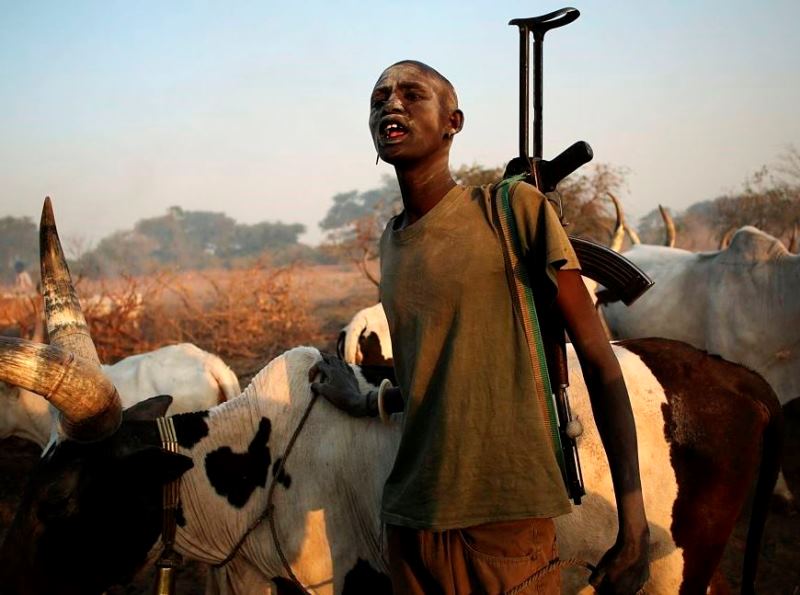
.
By Miriam Ike
.
In Nigeria, the issues of impunity and farmer-herder conflict have long been intertwined, posing significant challenges. The purpose of this article is to delve into the complexities of the farmer-herder conflict and propose comprehensive strategies to address impunity, promote justice, and ultimately achieve long-term peace in the affected areas.
.
The farmer-herder conflict in Nigeria is primarily caused by competition for resources such as land and water, which is exacerbated by factors such as religion, ethnicity, and economics. Historical grievances, resource scarcity caused by climate change, and the proliferation of small arms have all contributed to the conflict’s escalation. Attacks have become more destructive, resulting in casualties, village destruction, and farmland incineration. The prevalence of such attacks, combined with the promotion of impunity, necessitates immediate action.
.
The farmer-herder conflict is exacerbated by impunity, which allows perpetrators to avoid accountability for their actions. The absence of prompt and fair justice perpetuates a cycle of retaliation, exacerbating the conflict. Combating impunity is critical to breaking the cycle and laying the groundwork for long-term peace.
.
Legal reforms, security sector reforms, community engagement, education and awareness, livelihood support, and international cooperation are all part of comprehensive strategies to combat impunity.
.
It is critical to strengthen the legal framework so that crimes related to the farmer-herder conflict can be clearly defined and adequately punished. Create special courts or tribunals to expedite the adjudication of conflict-related cases and ensure timely and fair trials.
.
Security sector reforms will improve law enforcement agencies’ ability to respond to communal conflicts effectively.
.
Conduct thorough investigations into reported incidents to ensure that perpetrators are identified and held accountable.
.
Community engagement, involving representatives from both farming and herding communities, will aid in the facilitation of dialogue and reconciliation processes at the community level.
.
Create community-based conflict resolution mechanisms to address grievances and prevent disputes from escalating.
.
Implement educational programmes that promote tolerance and understanding among various ethnic and religious groups. Disseminate information about the legal ramifications of violence, emphasising the importance of peaceful coexistence.
.
To combat impunity, the government must also develop initiatives to improve economic opportunities for both farmers and herders, thereby reducing competition for scarce resources. To mitigate the impact of climate change on resource availability, promote sustainable agricultural practices and provide assistance for alternative livelihoods.
.
Furthermore, the government must work with regional and international partners to share intelligence, expertise, and resources in order to address the root causes of the conflict. Seek assistance in monitoring and controlling the flow of illicit weapons that are fueling the violence.
.
To address impunity in the context of the farmer-herder conflict, a comprehensive and integrated approach is required. Nigeria can lay the groundwork for long-term peace by enacting legal reforms, strengthening security measures, engaging communities, promoting education and awareness, assisting with livelihoods, and fostering international cooperation. To break the cycle of violence and create a more stable and just society, the government, civil society, and international partners must work together.
Leave a Reply